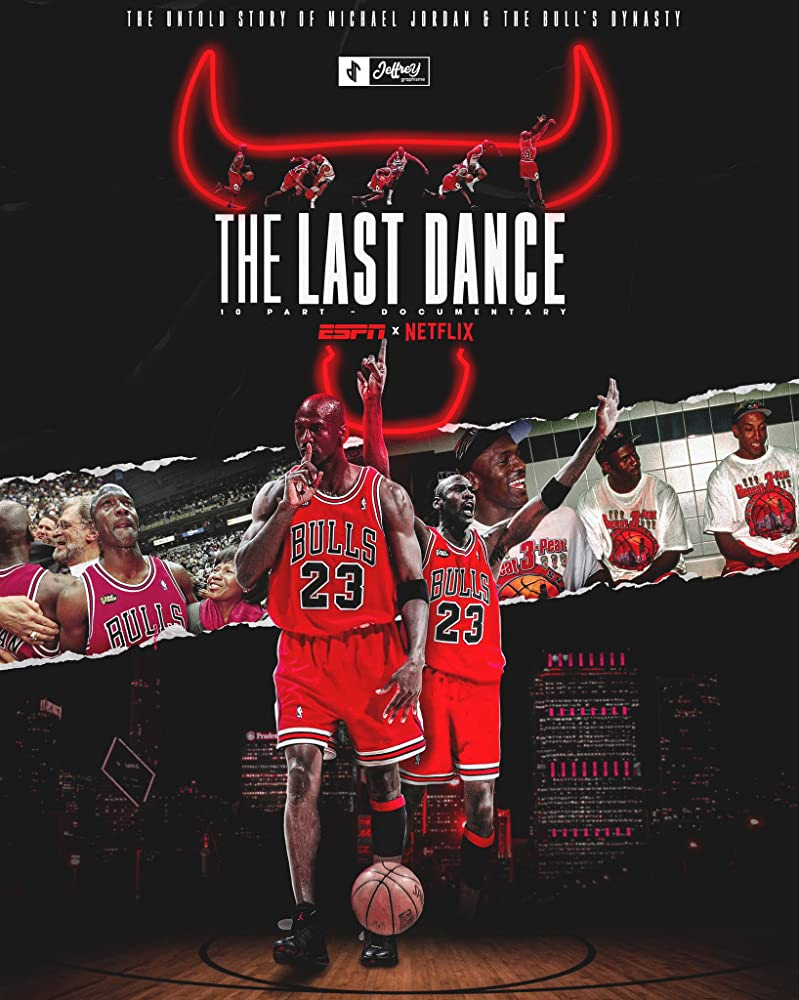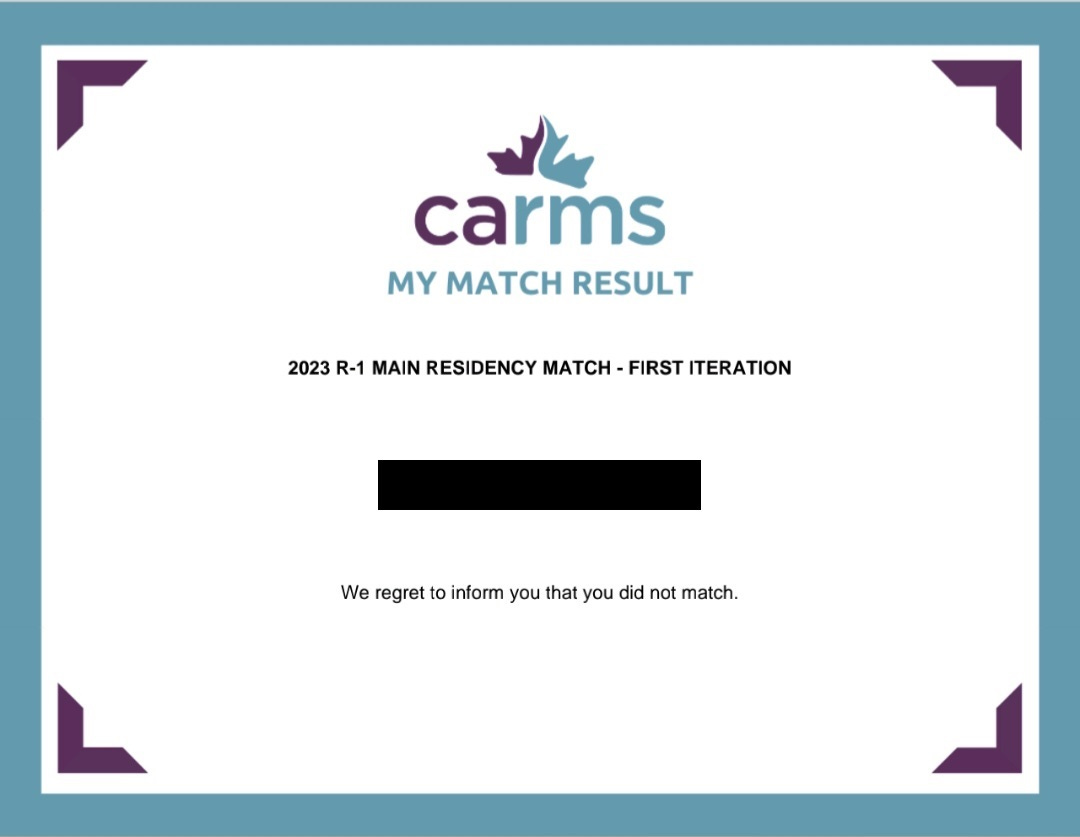Failing Forward
The CaRMs match can be the biggest moment in a doctor’s career, but it doesn’t have to be.
(Originally published in the Medical Post - April 2023)
During the initial pandemic lockdown, I enjoyed watching Netflix’s documentary about Michael Jordan called “The Last Dance.” Growing up I was only a peripheral NBA fan until the Toronto Raptors came into the league but I certainly knew who the best player on the planet was.
Jordan was the ultimate competitor.
But did you know that Jordan missed more than 12,000 shots in his career?
And here is a YouTube compilation of his monster missed dunks
Lebron James, also a contender for the Greatest of All-Time (GOAT) in the NBA, holds the dubious record for the most career missed field goals in NBA playoff history.
For hockey fans, would it surprise you that Patrick Roy and Martin Brodeur, both Hall of Famer goaltenders, also have the most career NHL playoff losses?
In the NFL, Brett Favre, who has thrown the 4th most career touchdowns with 508 has also thrown the most career interceptions by a quarterback with 336.
Even my hero, Tom Brady, is tied with Peyton Manning for the most playoff losses by a QB in NFL history.
So what does this have to do with the CaRMS match?
The vast majority of physicians in Canada go through something called the Canadian Residency Match Service or “CaRMs Match.”
On our journey to becoming a doctor, we complete an undergraduate university degree before entering medical school. Medical school is generally 4 years, with the exception of Calgary and McMaster, which is 3 years in length. When a medical student graduates from medical school, they enter the CaRMs match to compete for residency spots across Canada. This is the process whereby undifferentiated medical students are slotted into their specialties that will shape their future careers, such as family medicine, internal medicine, general surgery, ophthalmology, etc.
According to the CaRMs website, nearly 6,000+ medical students and learners enter the Match each year.
As you can imagine, this is both a highly exciting but highly stressful period of time for medical students. They crisscross the country, at their own expense, to interview for positions and then sit patiently at home to await their fate.
For most medical students, Match Day is a celebration. For a select few who do not match, it can be a nightmare.
I spend too much time on Twitter, so over the past few years, I have tried to cut back on my Tweets and be less of a Twerp. But when I saw this tweet, I felt compelled to respond.
Match Day this year was March 22nd.
Twenty years ago, in March 2003, I didn’t match either.
Now, I was not surprised to go unmatched. During medical school I had done research in glaucoma. I needed a summer job to pay the bills that student loans wouldn’t and the Summer Research Training Program (SRTP) was a pretty good gig at Western. It certainly came with some perks, like presenting posters in Texas and Florida.
As a result, I got pegged in my class as the “Ophthalmology guy.” Trouble is, by the time I got to 4th year electives, I knew that I had neither the desire (nor the dexterity) to succeed as an ophthalmologist.
To this day my wife will exclaim: “Who in their right mind would let those oven mitts and stubby sausages near their eyes with anything sharp?!” Good point dear.
I still did my electives and ranked ophthalmology but I can say with certainty that the process did, in fact, work in this instance. I was not supposed to be an ophthalmologist.
In 2022, CaRMs reports that 186 Canadian applicants did not match. This number increases to 956 when you include US and International applicants.
I matched in the second round to family medicine at Western but knew deep down that comprehensive family medicine was not my passion. I still got a strong broad based training as a result and it was during my PGY2 that I did my palliative rotation in Windsor and the rest is history. Or is it?
The next part is a bit of a humble brag but I hope it helps to make the point.
In 2016 I received my Fellowship in the College of Family Physicians and was in the first cohort of CACs (certificate of added competency) for palliative care. In 2019, I received my Fellowship in the Royal College of Physicians and Surgeons of Canada. In 2020, I received my Fellowship in the American Association of Hospice Palliative Medicine.
I don’t believe there is a single person in North America with all three Fellowships.
From going unmatched in 2003 to the Triple Crown in 2020.
I can certainly empathize with the frustration and angst for unmatched candidates and the purpose of this article is not to minimize that. The CaRMS match is one of the biggest moments in a doctor’s life.
It can also be one of the most demoralizing for those who reach for the brass ring and fall short.
But things happen for a reason, of this I am certain.
Going unmatched not only meant a different career path for me, but I also met my wife during my family medicine residency at Western. I also ended up doing a rotation in palliative care through Western’s family medicine residency in Windsor, ON where my wife and I currently work and reside with our son.
As such, I am also certain things will work out in the end for those who go unmatched.
Hang in there. When a door closes, there are many more to open.
Best wishes to all of you on your journey towards a great career in medicine. One day I hope you will all look back at the valleys from the peaks of hills and mountains.










